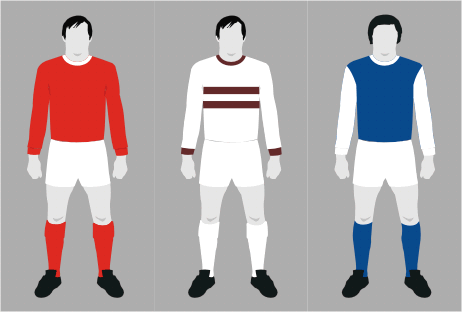At any given moment while you're watching a game of football on TV, you can tell what the current score is and how much time has elapsed. That's all down to the caption in the corner of your screen, a computer graphic that's been a part of 'Soccer on the Box' for the last couple of decades.
Turn the clock back further still and you'll find less and less information on display during important matches. As we discussed back in July 2012, the European Championships could barely summon up an 'R' for action replays before 1980, but this is a World Cup year, so when did we start seeing on-screen captions for the world's greatest football competition? The story starts nearly 50 years ago...
World Cup 1966
As host nation, England were able to boast not only some of the best football stadia in the world but also two of the best broadcasters - BBC and ITV. Together, they covered the entire 1966 tournament and beamed live pictures around the world via satellite - a World Cup first.
Had the tournament taken place a year later, it might just have been broadcast in colour (on the BBC, at least), but for the time being the action taking place across England was shown in black and white.
Turn the clock back further still and you'll find less and less information on display during important matches. As we discussed back in July 2012, the European Championships could barely summon up an 'R' for action replays before 1980, but this is a World Cup year, so when did we start seeing on-screen captions for the world's greatest football competition? The story starts nearly 50 years ago...
World Cup 1966
As host nation, England were able to boast not only some of the best football stadia in the world but also two of the best broadcasters - BBC and ITV. Together, they covered the entire 1966 tournament and beamed live pictures around the world via satellite - a World Cup first.
Had the tournament taken place a year later, it might just have been broadcast in colour (on the BBC, at least), but for the time being the action taking place across England was shown in black and white.
















